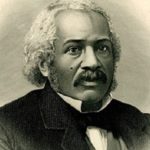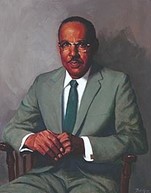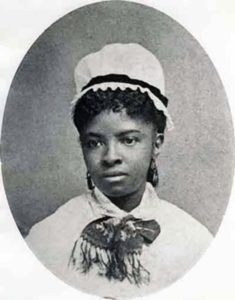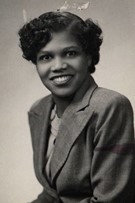The month of February celebrates Black history and cardiovascular disease – both of which offer unique opportunities. Black History Month celebrates the contributions of African Americans while American Heart Month provides opportunities to highlight the burden of cardiovascular disease. This is no way an exhaustive list, but who have contributed to the history of medicine.
 James Derham (or perhaps it was Durham) is believed to be the first Black person to officially practice medicine in the U.S and without a medical degree. It is believed he learned by way of apprenticeships which was a major form of passing skills to those who didn’t (or couldn’t) attend university. He was born a slave and worked for many doctors. He was able to buy his freedom and continue to practice, but by the early 1800s, James disappears from history. Some say he was murdered and others believe he left Philadelphia to practice medicine elsewhere.
James Derham (or perhaps it was Durham) is believed to be the first Black person to officially practice medicine in the U.S and without a medical degree. It is believed he learned by way of apprenticeships which was a major form of passing skills to those who didn’t (or couldn’t) attend university. He was born a slave and worked for many doctors. He was able to buy his freedom and continue to practice, but by the early 1800s, James disappears from history. Some say he was murdered and others believe he left Philadelphia to practice medicine elsewhere.
 Vivien Theodore Thomas was born in New Iberia, Louisiana and attending high school in Nashville in the 1920s. Vivien always wanted to be a doctor but due to the Great Depression he was forced to work instead. He eventually, became an assistant to surgeon Alfred Blalcok – most noted for his work in shock and Tetralogy of Fallot. Their hard work (along with Dr. Helen Taussig) created the Blalock-Thomas-Taussig Shunt, an operation that ushered in the modern era of cardiac surgery. In 1976, Vivien was awarded an honorary doctorate and named an instructor for surgery at Johns Hopkins School of Medicine. A great movie I saw about Vivien was Something the Lord Made and highly recommend it.
Vivien Theodore Thomas was born in New Iberia, Louisiana and attending high school in Nashville in the 1920s. Vivien always wanted to be a doctor but due to the Great Depression he was forced to work instead. He eventually, became an assistant to surgeon Alfred Blalcok – most noted for his work in shock and Tetralogy of Fallot. Their hard work (along with Dr. Helen Taussig) created the Blalock-Thomas-Taussig Shunt, an operation that ushered in the modern era of cardiac surgery. In 1976, Vivien was awarded an honorary doctorate and named an instructor for surgery at Johns Hopkins School of Medicine. A great movie I saw about Vivien was Something the Lord Made and highly recommend it.
 Rebecca Lee Crumpler was an American nurse, physician, and later turned author. She is believed to be the first African American woman to become a doctor of medicine in the U.S, studying at New England Female Medical College. In 1883, she wrote Book of Medical Discourses dedicated to maternal and pediatric medical care. It was the first publications written by an African American about medicine. After the Civil War, she continued to treat women and children in Virgina. She also worked for the Freedmen’s Bureau to provide medical care for freed slaves.
Rebecca Lee Crumpler was an American nurse, physician, and later turned author. She is believed to be the first African American woman to become a doctor of medicine in the U.S, studying at New England Female Medical College. In 1883, she wrote Book of Medical Discourses dedicated to maternal and pediatric medical care. It was the first publications written by an African American about medicine. After the Civil War, she continued to treat women and children in Virgina. She also worked for the Freedmen’s Bureau to provide medical care for freed slaves.
 Edith Mae Irby was inspired to become a physician after unfortunately seeing her sister pass from typhoid fever. At a young age, she saw health care disparities first hand and believed her sister passed prematurely due to lack of care because her family was poor. This sparked a fire for Edith to become a physician that found her reward in service not wealth. Edith was the first African-American student admitted to the University of Arkansas Medical School in 1948 and believed to be the first black student enrolled in any all-white medical school in the South. This comes 6 years before the Supreme Court’s decision on Brown v Board of Education.
Edith Mae Irby was inspired to become a physician after unfortunately seeing her sister pass from typhoid fever. At a young age, she saw health care disparities first hand and believed her sister passed prematurely due to lack of care because her family was poor. This sparked a fire for Edith to become a physician that found her reward in service not wealth. Edith was the first African-American student admitted to the University of Arkansas Medical School in 1948 and believed to be the first black student enrolled in any all-white medical school in the South. This comes 6 years before the Supreme Court’s decision on Brown v Board of Education.
In the words of poet laureate Amanda Gorman in the poem titled “The Hill We Climb” she states “we will not march back to what was, but move to what shall be.” This exemplifies both Black History and American Heart Month. Knowing where we came from helps us better see where we are going and I look forward to see where we go.
“The views, opinions and positions expressed within this blog are those of the author(s) alone and do not represent those of the American Heart Association. The accuracy, completeness and validity of any statements made within this article are not guaranteed. We accept no liability for any errors, omissions or representations. The copyright of this content belongs to the author and any liability with regards to infringement of intellectual property rights remains with them. The Early Career Voice blog is not intended to provide medical advice or treatment. Only your healthcare provider can provide that. The American Heart Association recommends that you consult your healthcare provider regarding your personal health matters. If you think you are having a heart attack, stroke or another emergency, please call 911 immediately.”